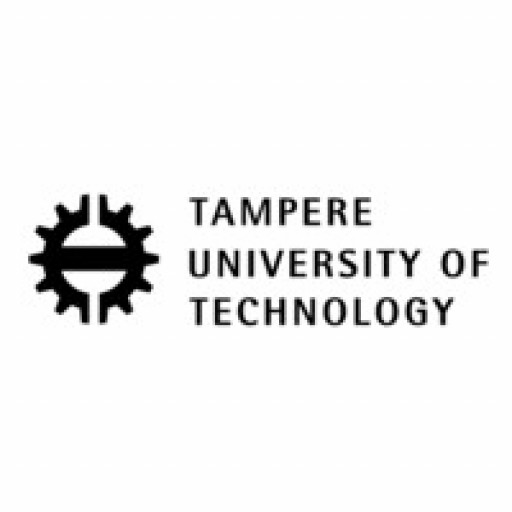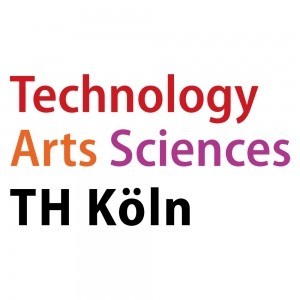Photos of university / #kingstonuniversity
The BSc (Hons) Networking and Data Communications programme at Kingston University is designed to provide students with a comprehensive understanding of the fundamental principles and practical skills necessary for a successful career in the rapidly evolving field of network technology and data communications. The course offers a blend of theoretical knowledge and hands-on experience, preparing graduates to design, implement, and manage complex network systems in a variety of organizational settings. Throughout the programme, students will explore key areas such as network architecture, protocols, security, wireless technologies, and data transmission methods, equipping them with the expertise needed to address current industry challenges. The curriculum is structured to develop technical competencies alongside critical thinking, problem-solving, and project management skills. Students will benefit from state-of-the-art laboratories, industry-relevant projects, and opportunities for professional placement, fostering real-world experience and enhancing employability. The programme is suitable for individuals interested in pursuing careers as network engineers, information security specialists, data analysts, or IT consultants. Kingston University's strong links with industry partners and its emphasis on practical learning ensure that students graduate with the confidence and capability to meet the demands of the digital age. Graduates will be well-prepared to contribute effectively to the development and maintenance of secure, efficient, and innovative network systems across various sectors, including telecommunications, finance, healthcare, and government. The degree also provides a solid foundation for those interested in postgraduate studies in related fields. Overall, the BSc (Hons) Networking and Data Communications programme aims to produce highly skilled, industry-ready professionals who can thrive in a fast-changing technological landscape and make meaningful contributions to the advancement of network and data communication technologies worldwide.
The Networking and Data Communications program at Kingston University is designed to equip students with comprehensive knowledge and practical skills in the field of computer networks and data transmission. This innovative course provides a thorough understanding of the fundamental principles of networking, including network architectures, protocols, and security measures that are essential in today’s interconnected world. Students will explore a range of topics such as LAN, WAN, and cloud networking, enabling them to design, implement, and manage robust communication systems for various organizational needs.
The curriculum emphasizes both theoretical foundations and practical application, incorporating hands-on projects, laboratory sessions, and real-world case studies. Students will learn about network hardware devices, such as routers, switches, and firewalls, and gain proficiency in configuring and troubleshooting these components. The program also covers vital areas like data encryption, cybersecurity strategies, and the management of large data flows across complex networks. As data communication is vital for contemporary business operations, the course prepares students to address current challenges and emerging trends in network technology.
Throughout the program, students will develop critical skills in network planning, performance optimization, and security compliance, ensuring they are well-prepared for careers in network administration, cybersecurity, data analysis, and other related fields. Kingston University’s state-of-the-art facilities and industry-relevant modules create an engaging learning environment that fosters innovation and technical expertise. Additionally, opportunities for industry placements and collaborative projects with technology companies are integral parts of the program, providing valuable experience and professional connections. Graduates of this program will be equipped to support the growing demand for network professionals in various sectors, contributing to secure, efficient, and scalable data communication solutions across organizations worldwide.
A minimum of 120 credits for Year 1, 120 credits for Year 2, and 120 credits for Year 3. The programme's core modules typically cover fundamental areas such as networking principles, data communications, network security, and protocols. Elective modules may include topics like wireless networks, cloud computing, and network management. To complete the degree, students are expected to undertake a final year project related to networking or data communications, demonstrating practical skills and theoretical understanding. Entry requirements usually include a minimum of UCAS points or equivalent qualifications, with preferred subjects in mathematics or computing. Applicants should also meet English language proficiency criteria, such as IELTS 6.0 or equivalent. The curriculum emphasizes a combination of theoretical knowledge, practical laboratory work, and industry-relevant projects to prepare students for careers in networking and data communications fields. Successful completion of coursework, lab assignments, and examinations is necessary for progression through each academic year. The programme is designed to develop competencies in designing, implementing, and managing complex communication networks, alongside understanding the latest advancements in data transmission technologies. Industry placements or internships may be encouraged to enhance practical experience. Overall, the program aims to equip graduates with the skills required for roles such as network engineer, data communications analyst, or network security specialist, ensuring they meet the evolving demands of the telecommunications and IT industries.
Funding for the Networking and Data Communications program at Kingston University is available through a variety of sources to support both domestic and international students. European Union and UK students may be eligible for government-backed undergraduate loans and grants, which can significantly reduce the financial burden of higher education. These options include student loans provided by the Student Loan Company, which offer flexible repayment terms based on income levels. In addition, students can apply for bursaries and scholarships specifically aimed at students pursuing technology and engineering courses. Kingston University offers merit-based scholarships for outstanding applicants, as well as need-based bursaries to assist those with financial difficulties.
International students are generally responsible for paying tuition fees upfront or may access private loans where applicable. The university also offers an instalment plan, allowing students to spread the cost of tuition over several payments throughout the academic year. For living expenses, students are encouraged to seek part-time work opportunities within the university or in the local area, which many students undertake to support their studies financially. Kingston University’s Careers and Employability Service provides guidance on part-time employment and internships, contributing additional income and valuable professional experience.
Students enrolled in the Networking and Data Communications program may also explore external funding options such as government-sponsored scholarships, industry sponsored bursaries, and corporate sponsorships from technology companies aligned with the field. Some students benefit from specific funding schemes aimed at promoting diversity in STEM fields, which Kingston University actively supports. Additionally, students may consider applying for research grants and grants offered through professional organizations related to telecommunications and data networking.
Financial aid applications are processed through the university’s admissions and student support services, which provide comprehensive assistance and guidance to prospective and current students regarding eligible funding sources, application procedures, and deadlines. Overall, the combination of government loans, university scholarships, employer sponsorships, and personal funding options creates multiple pathways for students to finance their studies and focus on successfully completing their degree in Networking and Data Communications at Kingston University.
The Networking and Data Communications programme at Kingston University is designed to equip students with essential knowledge and practical skills in the field of network systems, data transmission, and communication technologies. This course covers a broad range of topics including network architecture, protocols, security, and management, preparing graduates for careers in IT infrastructure, network administration, and cybersecurity. The curriculum is structured to blend theoretical foundations with hands-on experience, enabling students to understand the principles of data communication and implement effective networking solutions in real-world scenarios. Courses typically include networking technologies, wireless communication, network design, and security protocols, along with modules on emerging trends such as cloud computing and Internet of Things (IoT). The programme emphasizes problem-solving and analytical skills, with laboratories and project work that simulate industry environments, offering practical insights into configuring and maintaining complex network systems. Kingston University collaborates with industry partners to ensure the curriculum remains current and relevant to evolving technological standards. Students are encouraged to undertake industry placements or internships, providing valuable work experience and networking opportunities within the sector. Graduates of this programme often find employment as network engineers, systems administrators, security analysts, or in other IT-related roles across various industries. Through its comprehensive approach, the course aims to foster innovative thinking and adaptability, preparing students for the continuously changing landscape of data communications and network technology.






